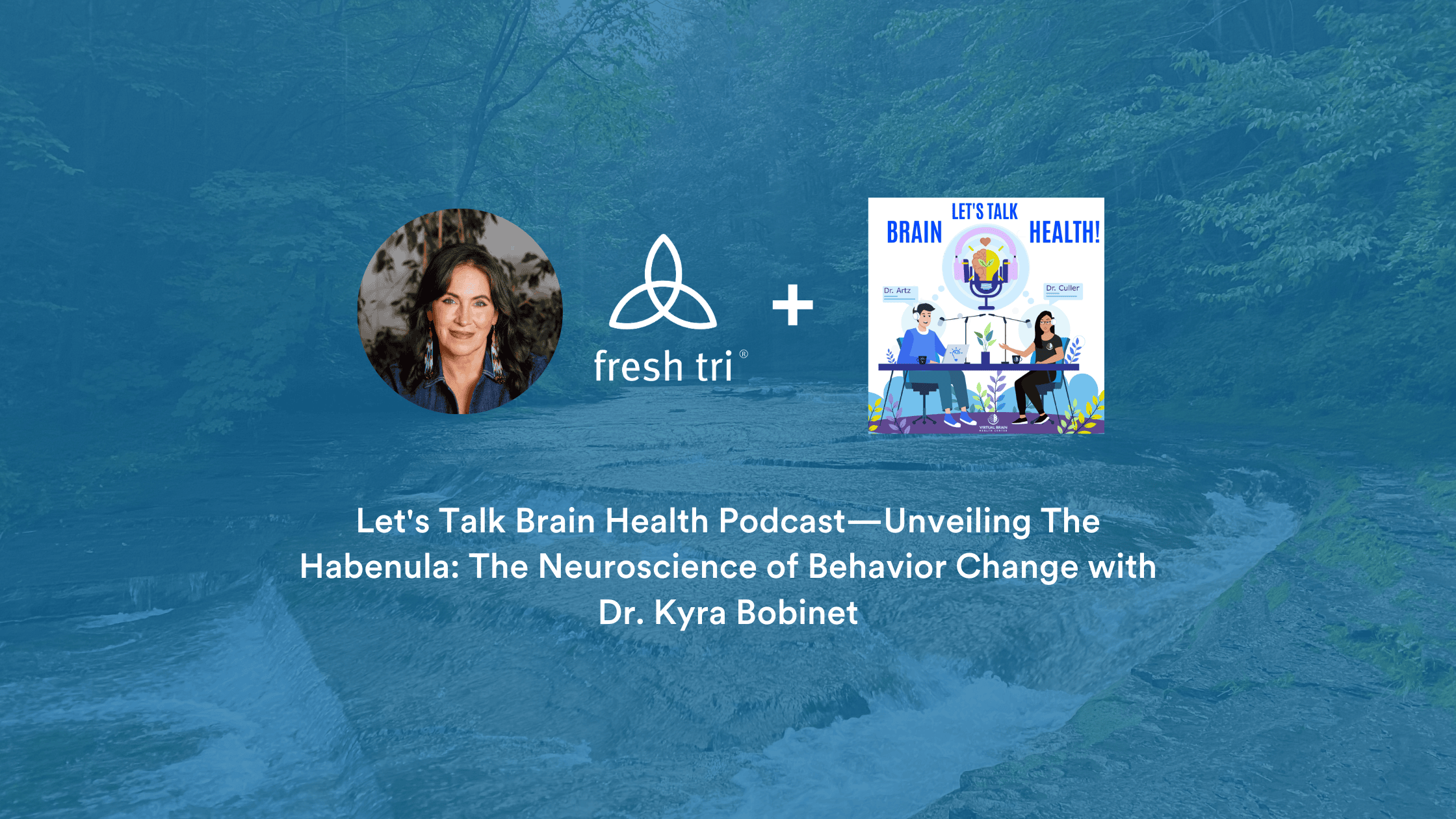Recently Fresh Tri’s founder and CEO, Dr. Kyra Bobinet, engaged in an insightful dialogue on The Virtual Brain Health Center’s Let’s Talk Brain Health Podcast. Within this conversation, she delved into the concept of the “know-do gap,” shedding light on its significance in our daily lives and presenting strategies to address this discrepancy effectively.
Understanding the Know-do Gap: Identifying the Disparity
Drawing upon her extensive medical experience, Dr. Bobinet observed a prevalent phenomenon among her patients – the disparity between their awareness of healthy behaviors and their ability to implement them. This discrepancy, commonly known as the know-do gap, represents a substantial challenge. Despite individuals recognizing the importance of actions such as reducing sugar intake and engaging in physical activity for overall well-being, there exists a notable struggle in translating this knowledge into consistent practice.
The Role of the Habenula
At the heart of Dr. Bobinet’s exploration of the know-do gap lies the habenula, a significant determinant of human behavior. With its profound influence spanning various domains including depression, motivation, addiction, and learned helplessness, the habenula assumes a pivotal role. Primarily, it detects thoughts of failure, both conscious and subconscious, and subsequently diminishes motivation upon recognition of these signals, perpetuating a cycle of inaction.
Navigating the Know-do Gap: Introducing the Iterative Mindset Method™
In response to the formidable challenge posed by the habenula’s influence, Dr. Bobinet proposes the Iterative Mindset Method™ as a promising solution. Rooted in the principles of practice, assessment, and adjustment, this approach signifies a paradigm shift in behavior change and habit formation. Through her research on individuals achieving sustained weight loss, Dr. Bobinet reveals a common thread – a commitment to iteration. Rather than adhering rigidly to fixed goals, these individuals embrace a flexible process of continual refinement, adapting their strategies in pursuit of optimal outcomes.
The Pitfalls of Traditional Approaches
Dr. Bobinet also underscores the limitations of conventional performance-based methodologies such as calorie counting and adherence to SMART goals. While ostensibly designed to promote progress and accountability, these methods inadvertently trigger the habenula, exacerbating feelings of demotivation and disillusionment.
A Forward-Thinking Approach: Embracing Innovation
Dr. Bobinet’s insights call for a reassessment of our approach to behavior change. By transcending the confines of the know-do gap and adopting a more iterative mindset, individuals can empower themselves to achieve sustainable health and wellness. Armed with the Iterative Mindset Method™, they can navigate the complexities of behavior change with resilience and adaptability.
To dive deeper into Dr. Kyra Bobinet’s enlightening perspectives, the full podcast is available for exploration here. Let us embark on a journey towards achieving our unstoppable together.













